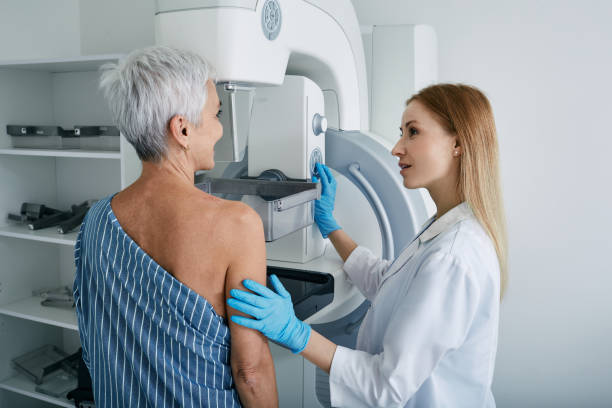Physical Address
304 North Cardinal St.
Dorchester Center, MA 02124
Physical Address
304 North Cardinal St.
Dorchester Center, MA 02124

Breast cancer survivors often face a challenging journey during the post-treatment phase. Navigating recovery can be complex, and many individuals turn to dietary supplements as part of their wellness strategy. These supplements aim to support overall health and mitigate side effects from treatments.
The role of dietary supplements in breast cancer recovery is significant yet requires careful consideration. While some vitamins and minerals may offer tangible benefits, it’s essential to understand that not all supplements are universally beneficial or safe for everyone.
Key takeaway: It’s crucial for breast cancer survivors to consult with healthcare providers before incorporating any supplements into their regimen. This ensures personalized guidance, considering potential interactions with ongoing treatments and individual health needs.
Understanding the delicate balance between supplementation and medical advice empowers survivors to make informed decisions that align with their recovery goals and enhance their quality of life. For those seeking secrets to a longer, healthier life, science-backed strategies and expert tips can help optimize wellness journeys for vitality and longevity. If you have any questions or need further information, feel free to contact us.
Dietary supplements can play a significant role in the recovery journey for breast cancer survivors, aiming to support overall health and well-being. The purpose of these supplements often centers on compensating for nutritional deficiencies that may arise due to treatment side effects or dietary restrictions. For many survivors, supplements provide essential vitamins and minerals that contribute to improved energy levels, immune function, and mental clarity.
However, it is vital to recognize potential risks associated with supplementation:
Engaging healthcare providers in these decisions ensures a tailored approach that aligns with individual health needs and treatment plans. This balanced consideration aids in maximizing benefits while minimizing potential hazards.
Moreover, it’s important to remember that breast cancer survivors may also face other health challenges such as Type 2 diabetes or heart disease, which can complicate recovery. Therefore, a comprehensive understanding of these conditions, including their symptoms, causes, treatment options, and prevention strategies is crucial for a healthier life.
In this context, dietary supplements should be chosen wisely and under professional guidance to avoid any adverse effects, including potential interactions with medications or over-supplementation risks. For more information on various medications and supplements, you can refer to our Drugs and Product Reviews section which provides unbiased evaluations of health-related products.

Vitamin D is often highlighted as one of the most essential supplements for breast cancer survivors. Its role in maintaining bone and mental health cannot be overstated, especially considering the increased risk of osteoporosis that can accompany breast cancer treatments.
Vitamin D helps your body absorb calcium, which is critical for building and maintaining strong bones. This becomes particularly important for those who have undergone treatments that may weaken bone density.
Adequate levels of vitamin D are associated with improved mood and cognitive function. For survivors, this means potentially reducing the risk of depression and anxiety, common challenges during recovery.
Some studies suggest a link between sufficient vitamin D levels and a reduced risk of metastasis, where cancer spreads to other parts of the body. While research is ongoing, maintaining optimal vitamin D levels could play a part in long-term health strategies.
Integrating vitamin D into your regimen can support both physical and mental well-being in the journey of survivorship. Always consult with a healthcare professional to tailor supplementation to your specific needs, ensuring it complements any ongoing treatment plans effectively.
For more information on managing health conditions post-treatment, you can explore additional resources available at SolidHealthInfo.com. They provide comprehensive insights on various health topics including men’s health issues, which might also be relevant depending on individual circumstances.
Calcium is essential for maintaining healthy bones, especially when combined with Vitamin D. This is particularly important for breast cancer survivors who may experience bone loss from certain treatments. While studies are ongoing to determine calcium’s potential protective effects against breast cancer, the results so far have been promising but not definitive.
Balancing calcium through diet and supplements can provide essential support during recovery.
Vitamin C is known for its potential to fight cancer, which is why it interests many breast cancer survivors. This vitamin is famous for its antioxidant properties, helping to reduce oxidative stress and support the immune system—both important during recovery.
Sources in Diet:
While vitamin C can be beneficial, caution is warranted when considering supplementation during chemotherapy treatment. Some studies suggest that high doses might interfere with the effectiveness of certain chemotherapy drugs. It’s essential to discuss with your healthcare provider before adding supplements to your regimen.
For most individuals, obtaining sufficient vitamin C from dietary sources is recommended. A well-balanced diet not only provides adequate levels of this vital nutrient but also ensures a synergy of health benefits from other vitamins and minerals present in whole foods.
B vitamins are crucial during breast cancer treatment and recovery. These essential nutrients, including Vitamin B6, B9 (Folate), and B12, support nerve function, energy production, and DNA synthesis.
Here’s how each B vitamin contributes to the well-being of breast cancer patients:
Breast cancer survivors considering B vitamins as supplements should ensure they have a balanced intake. It’s important to consult with healthcare providers to customize their regimen effectively.
Selenium is a trace mineral that plays an important role in improving survival outcomes for breast cancer survivors. It is believed to have antioxidant properties that protect cells from damage and support the immune system during recovery. Recent studies suggest that taking selenium supplements may be linked to better prognosis and lower risk of cancer returning. This potential makes it one of the top supplements recommended for breast cancer survivors.
Current research on selenium’s effectiveness shows that it can help reduce oxidative stress and inflammation, both of which can contribute to cancer progression. While these findings are promising, more extensive clinical trials are still needed to determine the best dosage and long-term effects.
For breast cancer survivors thinking about including selenium in their supplement routine, it’s important to talk to healthcare providers first. This will ensure safe usage and prevent any possible interactions with ongoing treatments. Additionally, incorporating elements of fitness and wellness into their lifestyle could further improve recovery and overall health.
Zinc is an important mineral for breast cancer survivors as it helps support immune health after treatment. A strong immune system is crucial during recovery to fight off infections and promote overall well-being. In addition to its role in immunity, zinc also helps maintain hormonal balance, which can be especially beneficial for those recovering from breast cancer treatments.
Research suggests that zinc deficiency may have negative effects, including the potential to contribute to tumor growth. This highlights the importance of ensuring sufficient zinc levels for survivors through diet or supplements. Foods that are high in zinc include lean meats, seafood, dairy products, nuts, and seeds.
When considering zinc supplements as part of your recovery plan, it is important to consult with healthcare providers to determine the appropriate dosage based on individual needs and avoid any potential interactions with other treatments. As you explore top supplements for breast cancer survivors, remember that zinc is a key component in this holistic approach to recovery.
For more information on various health conditions and their treatment options, including those relevant to breast cancer survivors, you can visit Solid Health Info.
Omega-3 fatty acids have gained attention among breast cancer survivors for their potential health benefits during recovery. These essential fats, typically found in fish oil, are known to offer numerous advantages:
When considering omega-3 supplements, it’s important to consult with your healthcare provider, particularly if you are undergoing treatment or taking other medications. This ensures that your approach to supplementation is both safe and effective within the broader context of breast cancer survivorship.
Many breast cancer survivors use probiotics as a supplement to improve gut health and boost immune function during recovery. These live microorganisms help restore the natural balance of gut bacteria, which can be disrupted by cancer treatments like chemotherapy.
Including probiotics in your diet can be easy with these options:
While supplements are also available, it’s best to consult with a healthcare provider before starting any new supplements to ensure they won’t interfere with ongoing treatments.
Integrating probiotics into your routine can be a valuable addition on your journey to recovery, complementing other supplements like Vitamin D and enhancing your overall health strategy. It’s also important to consider various lifestyle tips that can positively impact your recovery process, such as stress management and adopting healthy habits.
Turmeric, a popular spice with a vibrant yellow color, is frequently used among breast cancer survivors for its potential health benefits. Known for its anti-inflammatory and antioxidant properties, turmeric contains an active compound called curcumin, which has garnered attention in research for its potential role in cancer prevention and support during recovery.
Curcumin may help reduce inflammation and oxidative stress, two factors that can contribute to cancer progression. Some studies suggest it might slow the growth of cancerous cells and improve the efficacy of certain treatments.
While turmeric is generally considered safe, it’s crucial to be aware of possible interactions with conventional cancer therapies. For instance, it may enhance or inhibit the effects of chemotherapy drugs, which underscores the importance of consulting healthcare providers before incorporating turmeric or curcumin supplements into your regimen.
Adopting turmeric as part of a dietary strategy should be done thoughtfully, aligning with a comprehensive approach to health that includes other top supplements for breast cancer survivors such as Vitamin D and probiotics. However, it’s essential to remember that this information is not a substitute for professional medical advice. You should consult with your healthcare provider before making any changes to your treatment plan. For more details on our policies regarding the use of this website and its content, please refer to our Terms of Use, Disclaimers, Privacy Policy, and Legal Information.
Breast cancer survivors often explore natural products like melatonin and cannabis for symptom management related to treatment. These supplements are increasingly reported by survivors seeking relief from side effects.
Known primarily for its role in regulating sleep, melatonin may help alleviate insomnia and improve sleep quality—a common concern among those undergoing recovery. Some studies suggest it may also have antioxidant properties that support immune function.
Used by some survivors to manage pain, nausea, and anxiety post-treatment. Cannabinoids, the active compounds in cannabis, are believed to interact with the body’s endocannabinoid system, potentially offering relief from chemotherapy-induced symptoms.
Engaging healthcare providers is crucial when considering melatonin or cannabis as part of a supplement regimen. Each individual’s response can vary, and potential interactions with ongoing treatments need careful evaluation to ensure safe use during the healing journey.
A balanced diet rich in fruits and vegetables is vital for breast cancer survivors post-treatment. These nutrient-dense foods provide essential vitamins, minerals, and antioxidants that support healing and overall well-being.
Whole grains such as brown rice, quinoa, and oats are excellent sources of complex carbohydrates. They provide sustained energy and are rich in fiber, which helps regulate blood sugar levels.
Incorporating lean proteins like chicken, fish, beans, and lentils can aid muscle repair and boost immune function. Protein is essential for maintaining muscle mass post-treatment.
Maintaining a nutrient-rich diet not only supports physical recovery but also enhances mental health by stabilizing mood swings often experienced during the recovery phase. Selecting a variety of colorful fruits and vegetables ensures a comprehensive intake of phytonutrients that contribute to holistic health benefits.

Adopting a healthy lifestyle can significantly enhance recovery for breast cancer survivors.
Regular physical activity is paramount, offering numerous benefits which can be explored further in our Fitness and Physical Activity section:
Stress management is equally crucial in reducing the risk of recurrence. Techniques such as those found in our Mental Health and Wellness section:
Incorporating these elements into daily routines supports not only physical health but also emotional balance during recovery. Empowering yourself with these lifestyle choices complements the benefits of dietary supplements discussed in “Breast Cancer: Top Supplements for Breast Cancer Survivors,” creating a holistic approach to post-cancer wellness.
Furthermore, if weight management is a concern during this journey, our article on Proven Strategies to Shed Weight Quickly offers effective tips that address metabolism, diet, and exercise to help you shed weight quickly and safely.
For more insights into health and wellness, feel free to visit SolidHealthInfo.com, your trusted source for reliable advice and expert tips on empowering lifestyle solutions.
Dietary supplements can play a significant role in supporting the health and recovery of breast cancer survivors. They may help improve overall well-being, enhance bone health, and potentially reduce the risk of metastasis. However, it is essential to consult with healthcare providers before starting any supplement regimen.
Some of the top recommended supplements for breast cancer survivors include Vitamin D, Calcium, Vitamin C, B Vitamins, Selenium, Zinc, Omega-3 Fatty Acids, Probiotics, Turmeric, and Melatonin or Cannabis. Each of these supplements has specific benefits that can aid in recovery and overall health.
Vitamin D is important for maintaining bone and mental health. Research suggests a connection between adequate Vitamin D levels and a reduced risk of metastasis in breast cancer survivors. It is recommended to obtain Vitamin D through safe sun exposure, dietary sources, or supplements as advised by a healthcare provider.
Calcium works alongside Vitamin D to ensure optimal bone health. Current research indicates that calcium may also play a role in breast cancer protection. Survivors should consider dietary sources like dairy products or leafy greens and discuss supplementation with their healthcare provider if needed.
Yes, certain supplements can pose risks when taken during chemotherapy treatment. For instance, high doses of Vitamin C may interfere with chemotherapy medications. It is crucial for survivors to discuss any supplementation with their healthcare team to avoid potential interactions and ensure safe practices.
In addition to dietary supplements, maintaining a balanced diet rich in fruits and vegetables and engaging in regular physical activity are vital lifestyle factors that support recovery. These practices can enhance mental well-being and help manage stress, potentially reducing the risk of recurrence.